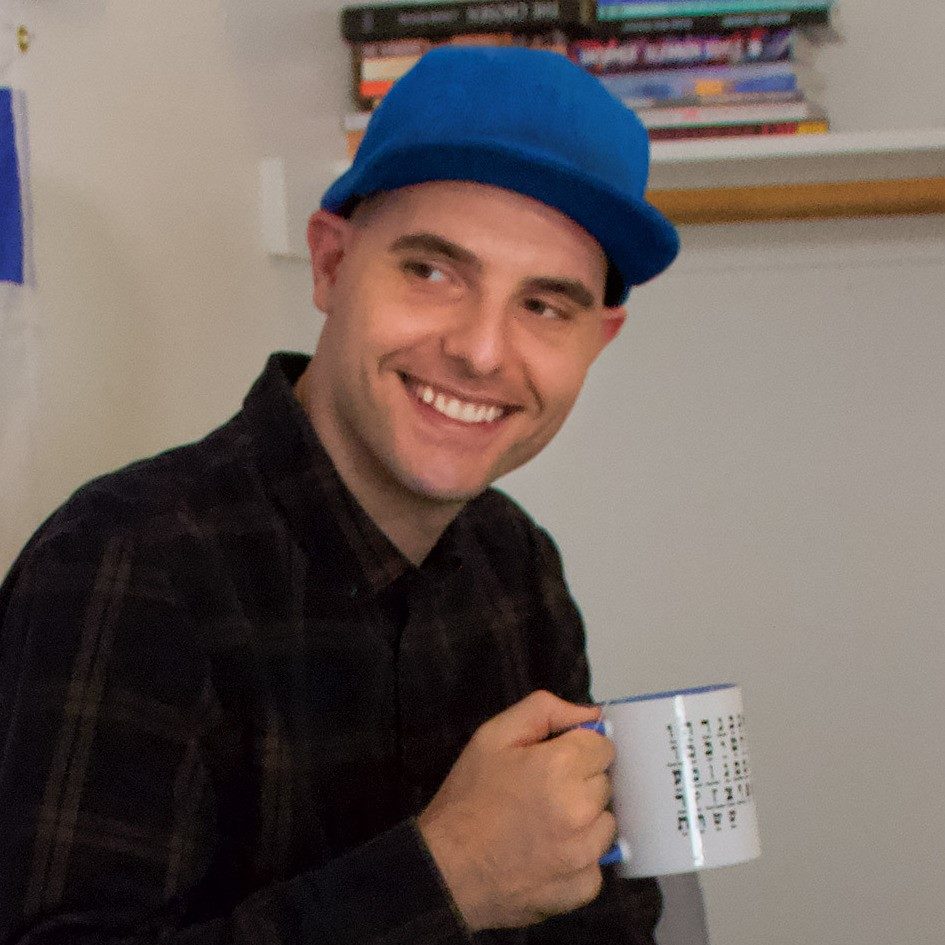Just a few feet from the bima, Adam R. sat passed out through the entirety of services that morning. Fatefully, his Rabbi took notice, realizing there was something serious going on with Adam—she woke him up and offered a solution to his malady. She suggested he go to Beit T’Shuvah, which was a pivotal moment in Adam’s journey to recovery.
Adams’ father is Jerry Rubin, a renowned social activist from the Sixties and Seventies who advocated for the end of the Vietnam War. Adam’s father was quite close to a man named Timothy Leary, the psychologist and activist known for his strong advocacy of psychedelics. “I remember calling Mr. Leary, ‘uncle Tim,’” says Adam. As one might imagine, drugs were never far from reach, particularly marijuana. His father’s high profile in the activist scene left shoes that were hard to fill, and for what it’s worth, Adam began filling those shoes with weed. It was the only thing he knew.
At age five, tragedy struck when Adam’s father was killed by a speeding car while crossing Wilshire Boulevard. By the time he was 10 years old, Adam struggled with suicidal ideation and was prescribed Prozac. “I started smoking weed by the time I was twelve,” he says. “Growing up in a home where marijuana smoking was accepted, I already knew that I would be smoking it forever.” Adam was struggling to find himself and cope with anxiety, and he would soon find his solution in the form of a pill. “At some point I was introduced to Xanax, and found it to be a great accompaniment to the marijuana and a great way to enhance its effects. I started taking more and more Xanax, to the point where I was receiving multiple ‘scripts from multiple doctors every month,” he explains.
Adam eventually developed an extreme dependency to the drug and would go through withdrawals if he couldn’t get it. “I would wake up lying on the floor to paramedics asking me if I knew what state I was in on numerous occasions,” he says. ”Most of the time, I didn’t even know my name. That’s what it was like waking up to a grand mal seizure” he says. “I woke up once with my car wrapped around a telephone pole. I ended up at UCLA hospital, the same hospital my dad died in, with a broken hip, fractured skull, shattered wrist, a bruised lung, and a tube down my throat to keep me breathing. I spent weeks recovering in that hospital, and started using drugs again the moment I got out. I’m a real one—a real addict,” Adam says.
Adam had become so heavily addicted to benzos like Xanax that withdrawal from the drug could prove to be a life-threatening situation. He needed professional help. Dozens of psych wards, detoxes, rehabs, and hundreds of thousands of dollars later, Adam ended up broke and unhoused. “I left the last place I was at with just the lint in my pockets,” Adam said, “I was completely broken.”
Desperate to get well and find connection, Adam started a social media support group for Jews suffering with anxiety and depression. It was nice connecting with people online, but it wasn’t enough to keep Adam sober. Feeling like he was on a boat without a paddle, Adam surrendered and turned his life over to God. ”I started going to shul every week at a local synagogue,” he says. It was there that Adam was introduced to Beit T’Shuvah: “I called BTS every morning for weeks until a bed was available. Once I got in, I fell in love with the place.”
Adam has since become a registered drug and alcohol technician and is on his way to getting his CAADAC, a drug counseling certification. Sober and out from under his fathers shadow, Adam considers himself a revolutionary in his own right. “Sobriety is revolution,” he says proudly. “I love my mother, I love Hashem, and I love Beit T’Shuvah. And in the spirit of my father, I plan on dedicating my life to helping others.”
